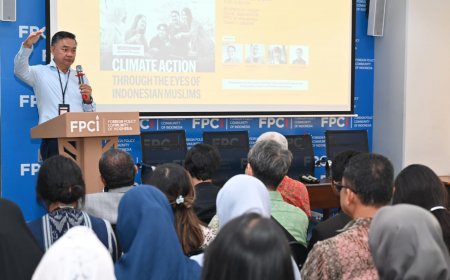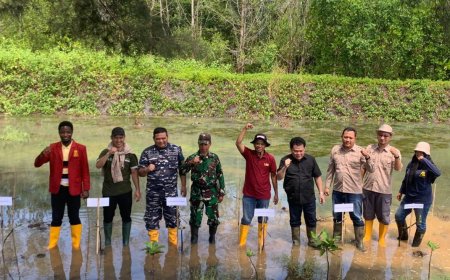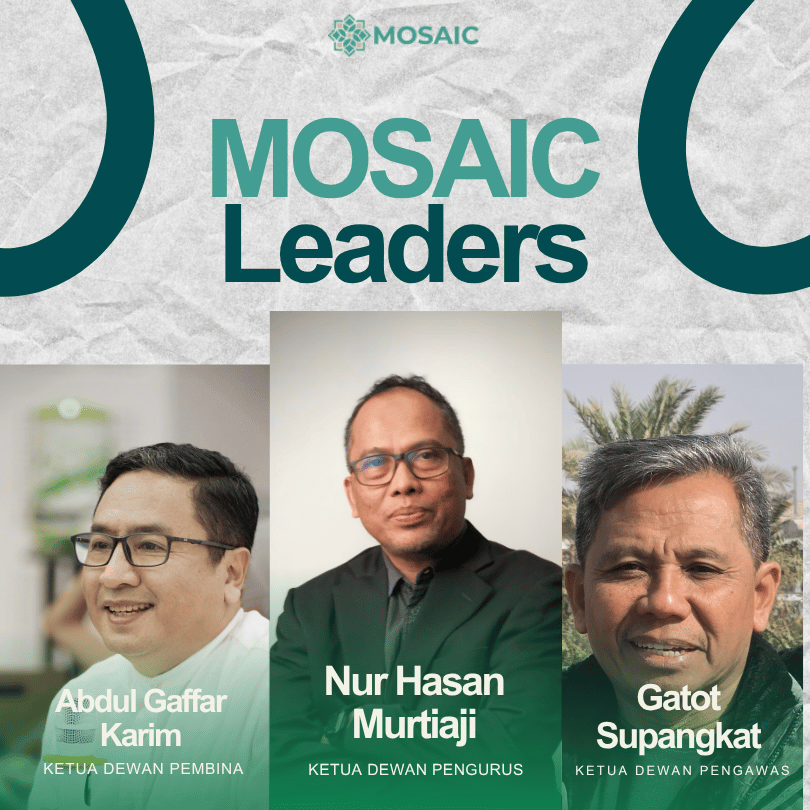Waste management for The Ummah
The values in the MUI Fatwa have actually been applied in some mosques in Indonesia.
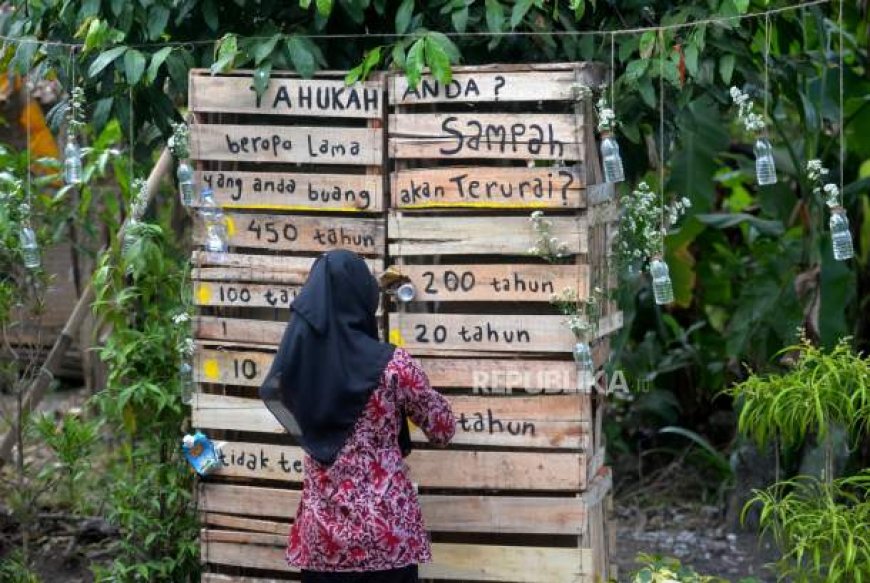
MOSAIC-INDONESIA.COM, JAKARTA -- The problem of garbage is still a 'yellow' issue in Indonesia. As one of the world's largest producers of garbage, the nation is not yet fully able to manage garbage properly. According to data from the National Waste Management Information System (SIPSN) of the Ministry of Environment and Forestry (MOE), there are 13.5 million tons of waste generated monthly from 129 districts/cities in the country during 2023.
Of this, there are still as much as 4.2 million tons of unmanaged waste. The majority of waste sources come from households (44.2 per cent) with the largest types being food waste (41 per cent) and plastic (17 per cent).
Compared to the data in 2022, which recorded waste volumes of up to 35.83 million tons, there was a significant decrease. However, the amount of unmanaged waste appears to be stagnant, at 13.4 million tons. The magnitude of the composition of unmanaged garbage has actually been the record of Islamic religious figures who belong to the Indonesian Ulama Assembly (MUI). MUI also issued fatwa number 41 of 2014 on Waste Management to Prevent Environmental Damage.
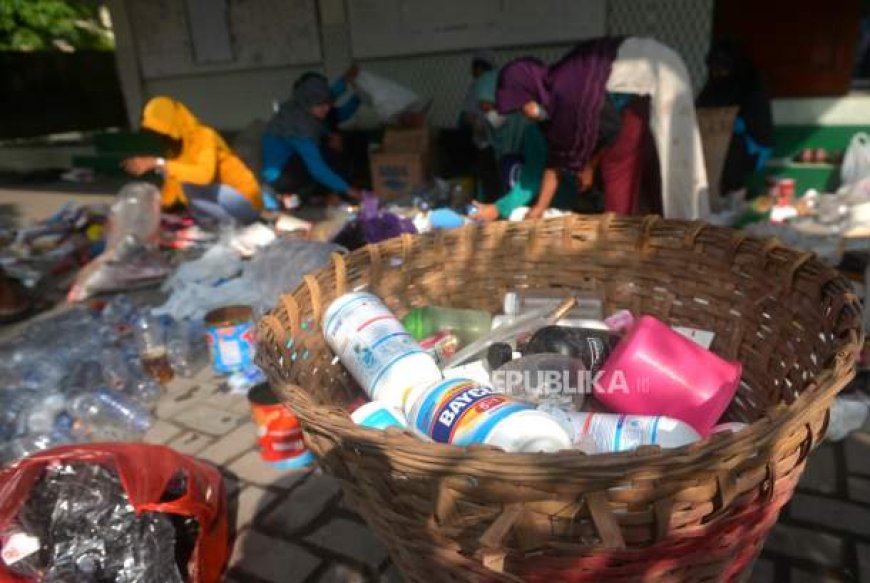 The MUI's Fatwa Commission revealed that the problem of garbage has become a national problem that adversely affects social life, economy, health, and the environment. The increase in environmental pollution is of concern, due to the low awareness of the public and industry in waste management.
The MUI's Fatwa Commission revealed that the problem of garbage has become a national problem that adversely affects social life, economy, health, and the environment. The increase in environmental pollution is of concern, due to the low awareness of the public and industry in waste management.
In the fatwa, MUI reminded that human beings serve as caliphs who must guard the earth, including preserving the environment. This is in accordance with QS Al-Baqarah verse 30. "Remember when your Lord said to the angels, 'I will make a caliph on the face of the earth.' They said: 'Why would you make (the caliph) of the earth a man who would wreak havoc on it and shed blood, when we always glorify you and sanctify you?' The Lord said, 'I know what you do not know.'"
Allah (swt) affirms that nature is subjugated for the welfare of man. God commands us to do good and forbids doing harm to the earth. It's just that human often forget God's trust to protect nature. In fact, all the biodiversity that exists in this nature is created for the benefit of man.
Unmanaged garbage becomes one of the sources of damage that humans do. The behavior of dumping plastic waste on beaches will not only damage marine life. In the long term, humans will also be affected by eating fish that have been exposed to microplastics. The poisons that fish consume will eventually also be eaten by humans. This is how rubbish is thrown into the river. Piles of garbage will make the river shallower so that people often suffer floods like we often have now.
Garbage is also the result of wasteful and excessive human actions. Indeed, Allah Swt Sudan reminds us: “... the wasteful are the brothers of Satan, and the devil is a disbeliever in his Lord... (QS. Al-'Isra': 27) “... And do not overdo it. Indeed, Allah does not like people who are excessive.” (QS. Alan'am:141).
MUI quotes the Prophet Muhammad (peace and blessings of Allaah be upon him) describing how much Islam loves cleanliness. “Indeed, Allah is good, good, clean, clean, and cleanness, noble (and) fond of glory, good (and) fond of goodness. Therefore, clean up your environment.” (MR. At-Tirmidzi).
For this reason, the organization, which is the representation of Islamic institutions in Indonesia, stipulates four legal provisions applicable to the fatwa.
1. Every Muslim is obliged to maintain the cleanliness of the environment, to use useful goods for health and to avoid various diseases as well as practices of tabdzir and wastefulness.
2. Careless littering and/or disposing of goods that can still be used for the benefit of yourself and others is illegal.
3. Governments and employers must manage waste in order to avoid harm to living creatures.
4. Recycling garbage into goods useful for improving the welfare of the legal population is mandatory.
The values contained in the MUI Fatwa have actually been applied in several mosques in Indonesia. The Garbage Allegiance Movement (GSS) started at Al-Muharram Mosque, Bantul, Yogyakarta, and the Indonesian Garbage Aldekah Movement (Gradasi) at Baitul Makmur Mosque, Cikarang, Bekasi, prove that the problem of garbage turns out to be of concern to the community.
Non-decomposing plastic waste is collected in mosques. Such garbage can even have useful economic value for the operational activities of the mosque. Meanwhile, kitchen waste is processed into compost in worshippers' homes. This movement, which has been followed by dozens of mosques in Indonesia, continues to be transmitted to other mosques in the country.
The contribution of scholars and mosques in the garbage issue is actually in line with the results of a survey from Purpose Climate Lab in 2021. At that time, Purpose conducted research that showed that Muslims already had a high enough awareness of disasters. According to the survey, 91 percent of Muslim respondents believe that maintaining the environment is the primary duty of man as caliph on the face of the earth. The results also show a high level of trust in clerics and religious leaders as messengers related to the climate crisis.
Mosaic Streering Comittee Rika Novayanti said there is a common misconception from research and world organizations that once referred to Indonesia as climate denial. In fact, there are contexts of faith that these global researchers fail to capture, such as the need to acknowledge God's power in every natural event as a form of self-reliance.
According to her, Muslims in Indonesia have shown a variety of environmental and climate concern through various activities and movements, from prayer together to forming a green mosque movement. He revealed that various fatwas have also been issued on environmental issues. In fact, some early approaches to environmental issues such as forest fires and droughts were often very religious because they had social and environmental concerns such as: istighosah, mujahadah, and Istisqa' prayer.

